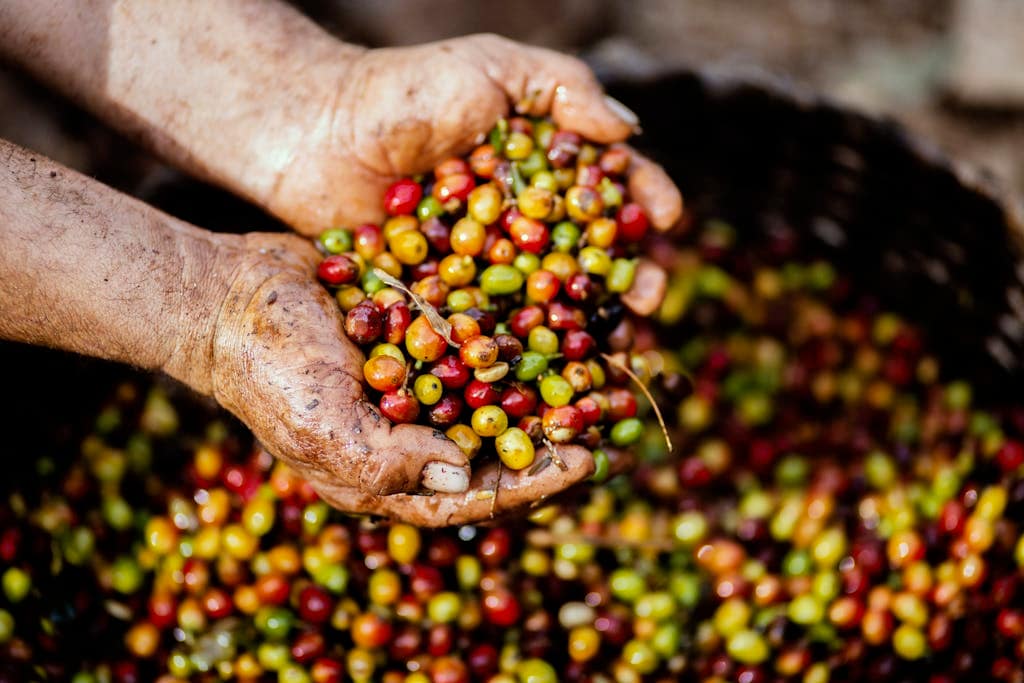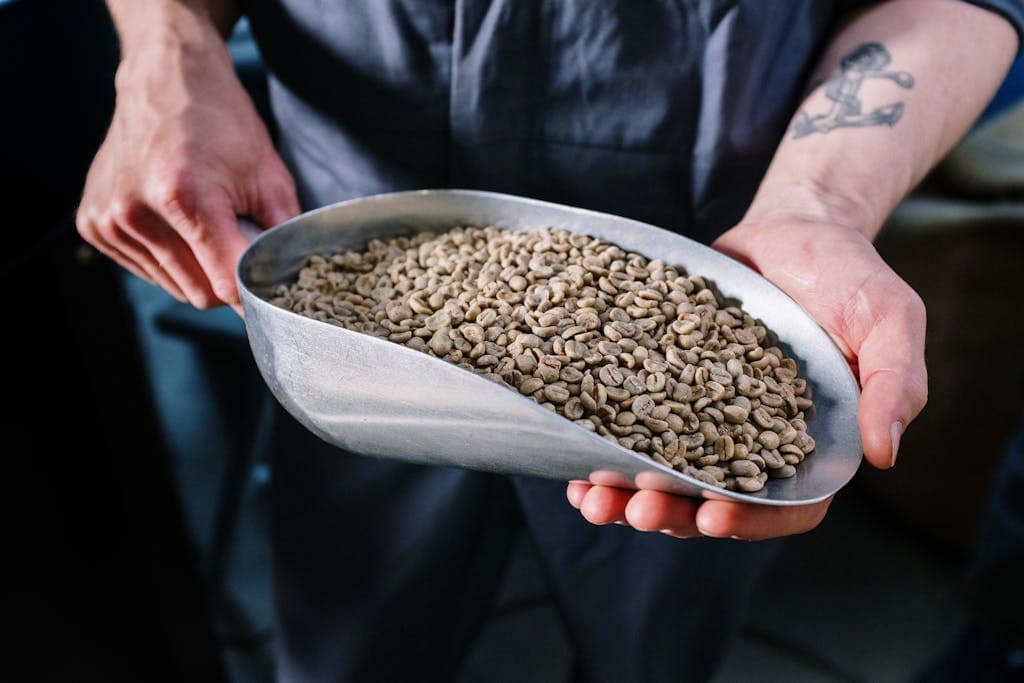Coffee is more than just a drink; it’s a ritual that brings people around the world together. From bustling city cafes to cozy kitchen counters, the quest for the best coffee beans is never-ending. The quality of the beans can make or break your coffee experience, transforming a simple cup into a delightful explosion of flavors.
In this post, we’ll explore some of the best coffee beans in the world has to offer. Whether you’re a casual coffee drinker or a connoisseur, understanding what distinguishes these beans will elevate your daily brew. Let’s dive into the origins and unique characteristics that make these beans so special.
Nicaraguan Coffee Beans
Nicaraguan coffee beans are becoming a favorite among coffee lovers. The beans from this Central American country are known for their rich flavors and high quality. Here’s why Nicaraguan coffee beans stand out.
Unique Flavor Profile
Nicaraguan coffee beans are praised for their unique flavor notes. Imagine taking a sip and tasting a delicious mix of chocolatey and nutty undertones. That’s what you get with these beans.
- Chocolatey and Nutty: The most common flavor notes you’ll find are chocolate and nuts. This gives the coffee a sweet and smooth taste.
- Bright Acidity: These beans also have a bright, citrusy acidity that balances the sweetness. It makes the coffee refreshing and lively.
- Fruity and Floral Hints: Some batches also include fruity and floral hints that add complexity to each sip. Think of subtle tastes of orange blossom or a hint of ripe berry.

Photo by Igor Haritanovich
Growing Conditions
The growing conditions in Nicaragua are a big reason why these coffee beans are so special. Let’s break down what makes this region perfect for coffee farming:
- Volcanic Soil: Nicaragua has many volcanic mountain ranges. The soil here is rich in minerals, which helps the coffee plants grow strong and healthy.
- High Altitude: Most Nicaraguan coffee is grown at high altitudes. This slows the growth of the coffee cherries, allowing them to develop deeper and more concentrated flavors.
- Climate and Rainfall: The country’s tropical climate, with its regular rainfall, provides the perfect environment for coffee plants. This climate supports slow and even maturation of the coffee cherries.
- Shade-Grown: About 95% of Nicaraguan coffee is shade-grown. This means trees are planted around coffee plants to provide a natural canopy. This method not only protects the coffee plants but also encourages biodiversity.
In conclusion, the unique flavor profile and exceptional growing conditions make Nicaraguan coffee beans some of the best in the world. Whether you prefer a simple cup or a complex brew, these beans will not disappoint.
Sumatra Coffee Beans
Sumatra coffee beans are truly unique and offer a taste like no other. Known for their earthy and spicy notes, these beans are sought after by coffee lovers around the globe. What makes them even more interesting is the traditional wet-hulling process used in their production. Let’s explore these aspects in detail.
Earthy and Spicy Notes

- Earthy Flavors: Imagine the rich, mossy taste like walking through a damp forest. Sumatra coffee often has earthy tones similar to mushrooms or wet soil.
- Spicy Undertones: Along with earthiness, there’s an unmistakable spice. Think of warm spices like cinnamon and clove, offering a comforting yet exotic kick.
- Full-Bodied Experience: The coffee’s full body and low acidity make it a preferred choice for those who enjoy a smooth, robust cup. It’s like wrapping yourself in a cozy blanket on a cold day.
The combination of these flavors creates a complex and deeply satisfying coffee experience that’s hard to forget.
Traditional Processing Methods
The traditional wet-hulling process, known as Giling Basah, is unique to Sumatra and significantly influences the flavor of the coffee. This method is quite different from the processing techniques used in other coffee-growing regions.
- Wet-Hulling Process: Unlike other regions where beans are dried before hulling, in Sumatra, the beans are hulled while still wet. This method imparts a distinct taste and texture to the beans.
- Moisture Content: The beans are kept at a higher moisture content throughout the process, which contributes to their heavy body and complex flavors. It’s like slow-cooking a stew – the longer process results in richer flavors.
- Unique Appearance: Sumatra beans often have an unusual blue-green color because of the wet-hulling. This characteristic makes them easily recognizable.
The traditional methods and dedication to quality produce a coffee that’s not just a drink but a robust experience. Sumatra coffee beans are a true gem in the coffee world, offering a taste adventure to those willing to explore their unique flavors.
Yemeni Matari Coffee Beans
Yemeni Matari coffee beans are a hidden gem in the coffee world. Known for their bold flavors and rich history, these beans offer a unique coffee experience that’s hard to find anywhere else. Let’s explore what makes them so special.
Complex and Exotic Flavors
One of the standout features of Yemeni Matari coffee beans is their incredible flavor profile. The flavors are complex and exotic, bringing an assortment of notes that dance on your taste buds.

Photo by Juan Pablo Serrano
- Wine-Like Notes: Imagine taking a sip and being reminded of a fine red wine. These beans have distinct wine-like characteristics that are deep and full-bodied.
- Fruity Undertones: Alongside the wine notes, you’ll find fruity undertones. Think of juicy berries or ripe fruits, adding a sweet and tangy twist to every cup.
- Spicy and Earthy: There’s also a hint of spice and earthiness. It’s like tasting cloves or cinnamon, grounded with the richness of the earth.
This intricate blend of flavors makes Yemeni Matari coffee beans a favorite among those who love exploring different tastes in their coffee.
Historical Significance
Yemeni coffee has a rich history that’s intertwined with the origins of the global coffee trade. These beans are not only delicious but also hold a significant place in coffee history.
- Ancient Roots: Yemen is one of the earliest places where coffee was cultivated and brewed. It’s believed that coffee cultivation began here as far back as the 15th century.
- Trade Routes: Yemeni coffee was central to early coffee trade routes. The beans were shipped from the port of Mocha, giving rise to the famous term “Mocha coffee.” These trade routes helped spread coffee to the rest of the world.
- Cultural Impact: Coffeehouses in Yemen were among the first places where people gathered to enjoy coffee. These early coffeehouses became hubs of social activity, much like today.
The combination of extraordinary flavors and historical depth makes Yemeni Matari coffee beans not only a treat for the palate but also a nod to the rich tradition that has shaped the coffee culture we enjoy today.
Kenya AA Coffee Beans
Kenya AA coffee beans are often regarded as some of the best in the world. These beans are known for their bright acidity, fruity notes, and a strict grading system that ensures top-notch quality. Let’s take a closer look at why Kenya AA coffee beans stand out.
Bright Acidity and Fruity Notes
One of the most remarkable aspects of Kenya AA coffee beans is their bright acidity. Imagine taking a sip of your morning coffee and feeling a lively, almost sparkling sensation on your tongue. That’s the bright acidity at work, and it makes the coffee refreshing and vibrant.
- Citrusy Zing: You might notice a citrusy zing, similar to a splash of lemon or grapefruit. This adds a refreshing twist to your cup.
- Berries and Fruits: Along with the citrus, there are often hints of berries and other fruits. Think of the subtle sweetness of ripe blackberries or the tangy burst of a juicy plum.
- Balanced Sweetness: Despite the bright acidity, the coffee is well-balanced with a natural sweetness. It’s like having a perfect piece of fruit – neither too tart nor too sweet.
This combination of bright acidity and fruity notes makes Kenya AA coffee a favorite for those who enjoy a lively and flavorful cup.
Strict Grading System
Kenya takes coffee seriously, and nowhere is this more evident than in their strict grading system. The “AA” in Kenya AA coffee beans stands for the highest grade possible, and achieving this grade is no small feat.
- Screen Size and Density: The grading begins with the size and density of the beans. AA beans are the largest and heaviest, indicating they are fully developed and packed with flavor.
- Hand-Picked and Sorted: The beans are carefully hand-picked and sorted to ensure only the best make it through. It’s a meticulous process, much like selecting the finest ingredients for a gourmet meal.
- Quality Control: After sorting, the beans undergo rigorous quality control checks. They are examined for defects, and only those that meet the highest standards are graded as AA.
This strict grading system ensures that when you buy Kenya AA coffee, you are getting beans of the highest quality. It’s like having a stamp of excellence that guarantees a superior coffee experience.
The combination of bright acidity, fruity notes, and strict grading makes Kenya AA coffee beans truly exceptional. Whether you’re a seasoned coffee aficionado or just starting your journey, Kenya AA offers a cup of coffee that’s both refreshing and deeply satisfying.
Colombian Coffee Beans
When people talk about the best coffee in the world, Colombian coffee beans often top the list. Known for their consistent quality and smooth taste, these beans have a global reputation that coffee enthusiasts swear by.
Balanced and Smooth
One of the things that makes Colombian coffee so popular is its balanced and smooth taste. Imagine taking a sip and feeling a perfect harmony of flavors with no one note overpowering the others. That’s the magic of Colombian coffee.
- Medium Body: The coffee typically has a medium body, which means it’s not too light or too heavy. It’s just right for most coffee drinkers.
- Mild Acidity: You’ll find a mild level of acidity that gives the coffee a bright and vibrant character without being too sharp.
- Rich Aroma: The aroma is another reason why Colombian coffee stands out. It’s rich and inviting, making you want to take that first sip even more.
Colombian coffee is like a well-orchestrated symphony. Every flavor, from the fruity undertones to the chocolatey hints, plays its part perfectly, leading to a delightful taste that can be enjoyed any time of day.

Photo by Lukas
Optimal Growing Conditions
Colombia has some of the best growing conditions for coffee in the world. These conditions are so ideal that they contribute directly to the high quality of Colombian coffee beans.
- Climate: The country’s climate is perfect for growing coffee. The combination of sun, rain, and stable temperatures throughout the year helps the coffee plants thrive.
- High Altitude: Many Colombian coffee farms are located in mountainous regions. The high altitude slows the growth of the coffee cherries, allowing for more complex flavors to develop.
- Volcanic Soil: The rich volcanic soil in Colombia contains minerals that are essential for the growth of strong and healthy coffee plants.
- Quality Control: Colombia has a strong focus on quality. The National Federation of Coffee Growers of Colombia ensures that only the best beans make it to market, maintaining the country’s reputation for excellence.
These optimal conditions work together to produce coffee beans that are not just good but exceptional. The careful cultivation and dedication to quality mean that with every cup of Colombian coffee, you’re tasting the result of perfect natural conditions and meticulous human care.
Ethiopian Coffee Beans
Ethiopian coffee beans are renowned for their rich history and unique flavors. Often considered the birthplace of coffee, Ethiopia offers a diverse range of coffee beans that are celebrated worldwide. Ethiopian coffee is more than just a drink; it’s a cultural experience.
Floral and Fruity Notes

Photo by Georgi Petrov
Ethiopian coffee beans are known for their floral and fruity flavor profiles. When you take a sip, you might think you’re tasting a bouquet of flowers and a medley of ripe fruits.
- Floral Aromas: Many Ethiopian coffee beans have a strong floral aroma. It’s like walking through a blooming garden with the scents of jasmine and bergamot filling the air.
- Fruity Flavors: Alongside the floral notes, Ethiopian coffee often carries fruity flavors. Imagine biting into a juicy peach or a handful of ripe berries. These vibrant flavors make each cup lively and refreshing.
- Wine-Like Qualities: Some varieties have a wine-like quality, adding depth and richness. It’s like savoring a fine wine but in coffee form.
This combination of floral and fruity notes creates a complex and enjoyable experience for coffee lovers. Ethiopian coffee is perfect for those who appreciate nuanced flavors.
Cultural Significance
In Ethiopia, coffee is not just a beverage; it’s an integral part of the culture and daily life. Ethiopia is often referred to as the birthplace of coffee, and the drink holds a special place in the hearts of its people.
- Coffee Ceremonies: One of the most important traditions is the Ethiopian coffee ceremony. This elaborate ritual involves roasting green coffee beans, grinding them by hand, and brewing the coffee in a special pot called a “jebena.” It’s a communal activity that brings family and friends together.
- Social Connection: Coffee in Ethiopia is about more than just the drink; it’s about connection. People gather to share stories and bond over multiple cups of coffee. It’s a time-honored tradition that emphasizes togetherness.
- Economic Importance: Coffee is also a major part of Ethiopia’s economy. The country is one of the largest coffee producers in the world, and many farmers rely on coffee cultivation for their livelihoods.
The cultural significance of coffee in Ethiopia cannot be overstated. It’s woven into the fabric of everyday life and symbolizes hospitality, respect, and community.
The combination of unique flavors and deep cultural roots makes Ethiopian coffee beans stand out. Whether you are savoring the floral and fruity notes or experiencing a traditional coffee ceremony, Ethiopian coffee offers something truly special.
Conclusion

Explore, taste, and find what suits your palate.
Your favorite might be the fruity and floral Ethiopian coffee or the balanced and smooth Colombian beans. Remember, the best coffee beans are the ones that bring you joy with every sip.


